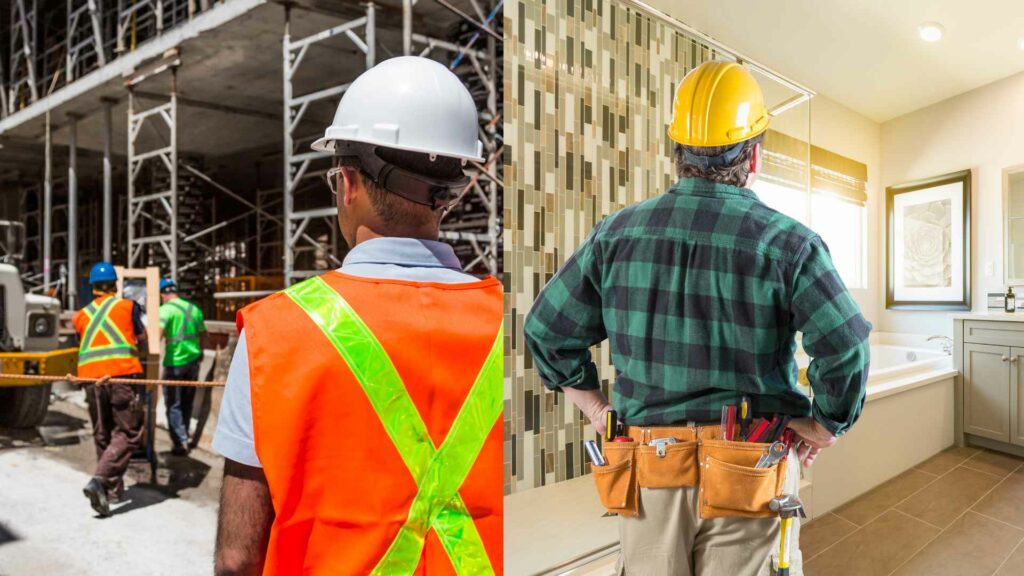
There are nearly 7.8 million people employed in the construction industry in the United States. Although many of these positions are filled by laborers. However, projects are led and managed by construction managers and contractors.
Construction managers and general contractors are crucial in any construction project. Each of these positions has unique functions in the construction sector.
Keep reading to learn the differences between a construction manager vs general contractor.
What Is a Construction Manager?

A construction manager (CM) is in charge of overseeing all parts of a construction project. Their primary responsibility is project planning, organization, and execution.
Construction managers are able to ensure that a project goes seamlessly. Construction managers work with project owners, architects, engineers, subcontractors, and other stakeholders.
Manage Project Planning
Construction managers work with project owners and design professionals to create the project. They work to develop timetables and budgets in the early stages of a project.
Construction managers begin by learning about the project owner’s aims and objectives. At the start of the project, they are able to define the project scope.
Budget Management
Construction managers are in charge of developing and managing the project budget. They must have exemplary bookkeeping skills.
Project managers will need to:
- Keep track of expenses
- Negotiate with suppliers and subcontractors
- Make revisions to keep the project within the budget
Budget management enables construction managers to properly watch and control expenses. It helps them avoid overpaying. This also ensures that the project will be funded until its completion.
Bringing in a project manager gives you realistic expectations for the project. Proper budgeting lets stakeholders assess if the project outcome will justify the investment.
Staff and Contract Management
Construction managers work with project owners to recruit contractors, subcontractors, and suppliers. During the pre-construction phase, construction managers identify jobs that must be subcontracted.
They assess the expertise required for each area of the construction. This is done while factoring in the scope of the project. Once they bring in this “extended staff” they need to enter into binding contracts.
Schedule Coordination
CMs create precise project schedules, sequence tasks, and monitor progress. This is done to ensure that the project stays on track and fulfills deadlines.
Projects that don’t stick to their timeline may have to deal with excess labor costs. They may need to be modified if the project.
Quality Control
Construction managers are in charge of overseeing quality control methods. They are accountable for the quality of work that comes out of the job site.
When needed, a manager may need to intervene if they see a decline in a worker’s quality of work product.
Safety Compliance
An essential part of a construction manager’s job is safety compliance. This is done to protect workers and the general public. Construction managers are in charge of enforcing compliance with safety rules.
Before starting a project, construction managers plan and supervise safety training courses. These lessons are for all workers and subcontractors. This training covers potential risks, personal protection equipment (PPE), and emergency procedures.
A major part of maintaining a safe workplace is conducting regular site inspections. Construction managers detect and address any safety issues. They walk about the site, checking for unsafe working conditions and faulty equipment.
What Is a General Contractor?

A general contractor (GC) is in charge of overseeing the whole construction process. They are the project owner’s principal point of contact. Your GC is in charge of all on-site construction activities.
Construction Execution
General contractors are responsible for executing the construction plans, per the project’s designs. They ensure that the laborers are doing the job correctly.
Subcontractor Management
Subcontractors and suppliers who undertake specific jobs are managed by the general contractor. Some of the projects that subcontractors may work on in a build are:
- Plumbing
- Electrical work
- Carpentry
The subcontractors are contributing to the design. Great general contractors have a basic understanding of each specialty.
General contractors should maintain open and transparent channels of contact with subcontractors. They ensure that subcontractors understand the project’s expectations, timetables, and scope of work.
Procurement
General contractors source and buy building materials. This helps in ensuring that they are of good quality and meet the project specifications.
General contractors have spent their careers building up a network of suppliers. This network can come in handy to get you a better price or rush orders on supplies.
On-Site Supervision
On-site supervision provided by general contractors ensures that construction work proceeds smoothly. General contractors are responsible for ensuring safety and a job well done.
General contractors create a structured project schedule. They are responsible for keeping the team on track with their timeline. Working with subcontractors to establish a timeline helps to avoid conflicts and delays.
Problem-Solving
General contractors need to think on their feet to troubleshoot any issues. If there are weather delays or material shortages, they quickly modify the plans.
Difference Between a Construction Manager vs General Contractor
Construction managers and general contractors work closely together to complete construction projects. CMs and GCs have a lot of similar roles. However, the distinction between the two ensures that projects are properly executed.
Construction managers assist with pre-construction planning. They also help the owner when picking out a crew and contractor.
When construction starts, the construction manager acts as a liaison. They facilitate communication between the owner and contractors.
The GC relies on the CM to share the owner’s project goals. The general contractor’s domain is really the worksite. They meet with subcontractors and suppliers to ensure day-to-day operations are going smoothly.
The construction manager’s insights assist the general contractor in mitigating any problems. This can help in quickly addressing any concerns that may occur during construction.
Bring in Top Tier Leadership for Construction Projects
Construction managers and general contractors play integral roles in construction project’s success. Know the difference between hiring a construction manager vs general contractor.
The construction manager is responsible for project planning, budgeting, and coordination. The general contractor is in charge of project execution and on-site management.
Both of these team members ensure the project is executed efficiently. They prioritize safety and ensure the final product meets the owner’s expectations.
Understanding their respective duties is critical for all a project’s shareholders. Filling these roles increases the likelihood of a successful project outcome.
Contact our team at Property Manager Insider for construction management advice.
Property managers can use BidSource to have our team find a contractor ready to assist with your next project. Share your project details using the form below and our team will be in touch with a qualified contractor!

Aaron Hockel is a Partner and the VP of Digital Marketing at AltaVista Strategic Partners. A University of Maryland, Baltimore County (UMBC) alumnus, Aaron expertly crafts digital marketing strategies that drive success for clients, leveraging his deep industry knowledge and innovative approach.


